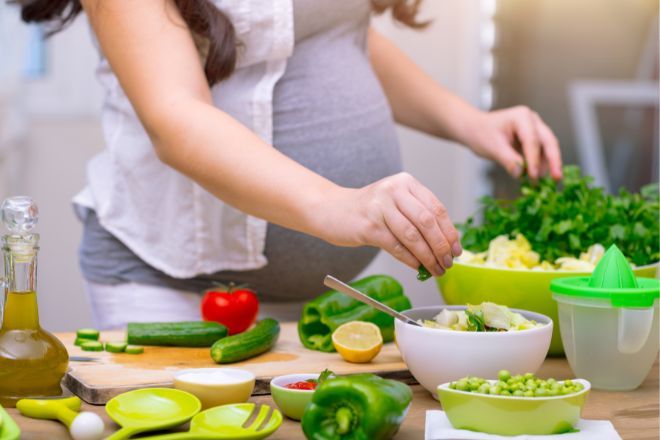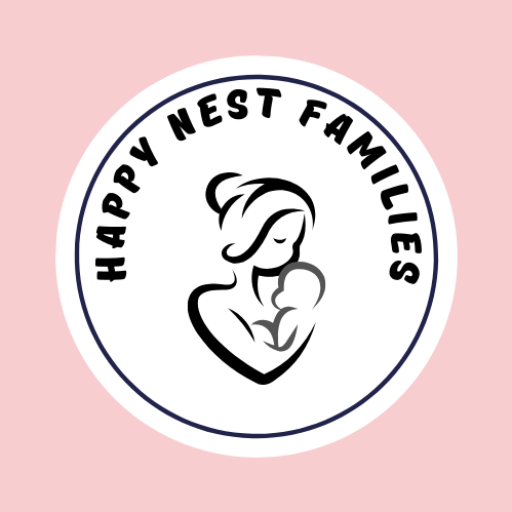healthy diet during pregnancy: Embarking on the journey of pregnancy brings with it the responsibility to nourish both mother and baby. Understanding the essentials of a healthy pregnancy diet is crucial for fetal development and the well-being of the expectant mother. Nutrition during pregnancy affects not just the growth of the baby, but also the mother’s health and her recovery post-delivery.
Therefore, pregnant women should prioritize a diet that is rich in vitamins and minerals, and tailor their meals to meet the increased dietary requirements of pregnancy. This approach ensures the intake of all necessary nutrients, which supports the various stages of fetal development and prepares the body for the demands of childbirth. The goal is to create a dietary plan that is sustainable, enjoyable, and most importantly, beneficial for both mother and child.

Essential Nutrients
Expecting mothers need a rainbow of nutrients to nurture their growing baby. A healthy pregnancy diet is rich in vital elements that support both mom and baby’s well-being. Essential nutrients make this magical journey smooth and ensure a strong foundation for the baby’s future.
What Nutrition Is Needed For A Healthy Pregnancy?
Eating right is key to a healthy pregnancy. Your body requires extra nutrients, vitamins, and minerals. A balanced diet includes:
- Protein to build important organs for the baby, like the brain and heart.
- Carbohydrates for daily energy.
- Fats to support the baby’s brain development.
Aim for a mix of:
| Food Group | Servings per Day |
|---|---|
| Fruits and Vegetables | 5 to 10 |
| Whole Grains | 6 to 8 |
| Lean Proteins | 3 |
| Dairy | 3 |
Drink plenty of water and choose foods high in fiber to prevent constipation.
Vitamins
Vitamins are crucial for a healthy pregnancy. Key vitamins include:
- Folic Acid – prevents birth defects.
- Vitamin D – for bone health.
- Vitamin B12 – keeps nerve and blood cells healthy.
These vitamins are found in:
| Vitamin | Food Sources |
|---|---|
| Folic Acid | Leafy greens, oranges, beans |
| Vitamin D | Fatty fish, eggs, fortified milk |
| Vitamin B12 | Meat, fish, dairy |

Consider prenatal vitamins to ensure you’re getting enough.
Minerals
Minerals support the baby’s growth and development. Essential minerals include:
- Iron – boosts blood to carry oxygen to the baby.
- Calcium – for strong bones and teeth.
- Zinc – aids baby’s cell growth and DNA production.
Find these minerals in foods like:
| Mineral | Food Sources |
|---|---|
| Iron | Red meat, beans, spinach |
| Calcium | Dairy products, broccoli, tofu |
| Zinc | Nuts, whole grains, dairy |
Eat a variety of these foods daily to meet mineral needs.
Balanced Meal Plans
A healthy diet during pregnancy is crucial for both the mother and the baby. A balanced meal plan ensures the right mix of nutrients that support the baby’s growth and keep the mother energized. Crafting such a meal plan involves including a variety of foods that are rich in essential vitamins and minerals. It’s about finding the perfect harmony between proteins, carbohydrates, fats, and fibers to nurture both lives.
What Is A Healthy Diet During Pregnancy?
A balanced meal plan during pregnancy means eating a variety of foods to get the nutrients needed for the baby’s growth and development. It should include:
- Fruits and vegetables: Loaded with vitamins, minerals, and fiber.
- Whole grains: Provide energy and essential B vitamins.
- Lean proteins: Essential for baby’s growth, including meats, beans, and nuts.
- Dairy: Supplies calcium for strong bones and teeth.
Balance is also about not eating too much of any one food group. Here’s an example of how to distribute nutrients across meals:
| Meal | Proteins | Whole Grains | Fruits & Vegetables | Dairy |
|---|---|---|---|---|
| Breakfast | 2 servings | 1 serving | 1 serving | 1 serving |
| Lunch | 2 servings | 2 servings | 2 servings | 1 serving |
| Dinner | 2 servings | 2 servings | 2 servings | 1 serving |
Breakfast Ideas
Start your day with a nutritious breakfast to give you and your baby a healthy jump. Here are some ideas:
- Oatmeal: A warm bowl of oatmeal topped with berries and a dollop of yogurt.
- Smoothie: Blend spinach, a banana, a handful of berries, and a scoop of protein powder.
- Eggs: Scrambled eggs with whole grain toast and a side of avocado.
These options combine proteins, whole grains, and fruits to create a balanced start to your day. Don’t forget to include a glass of milk or a slice of cheese for your calcium intake.
Lunch Options
Lunch should be a mix of light and filling. Aim for variety with these options:
- Salad: Mix greens, cherry tomatoes, grilled chicken, and quinoa.
- Wrap: Whole grain wrap filled with turkey, cheese, lettuce, and cucumber.
- Soup: Lentil or vegetable soup with a side of whole-grain bread.
Choose a piece of fruit like an apple or a pear to end your meal on a sweet note. These lunches provide a balance of protein, fiber, and essential nutrients to keep you going through the day.

Healthy Snacks
Eating healthy is key for a smooth pregnancy. Your body needs extra nutrients. That’s why picking healthy snacks is important. Let’s explore some tasty and nutritious options.
What Are High Protein Snacks For Pregnancy?
Protein is crucial during pregnancy. It helps your baby grow strong. Here are some high-protein snacks that are easy to make and delicious:
- Greek Yogurt: Rich in protein and calcium. Add some berries for extra flavor and nutrients.
- Cottage Cheese: Pairs well with fruit or on whole-grain toast. A perfect quick snack.
- Hard-Boiled Eggs: Great for on-the-go. They’re packed with protein and vitamins.
- Nut Butter: Spread on apple slices or whole-grain crackers. Fills you up and tastes great.
Here’s a table to show their protein content:
| Snack | Protein (grams) |
|---|---|
| Greek Yogurt | 10 |
| Cottage Cheese | 14 |
| Hard-Boiled Eggs | 6 |
| Nut Butter | 4 per tablespoon |
Fruits
Fruits are full of vitamins and fiber. They are sweet, refreshing, and easy to eat. Here are some top picks for pregnant women:
- Bananas: High in potassium and easy to digest. Great for energy.
- Berries: Loaded with antioxidants. They help keep you and your baby healthy.
- Apples: Fiber-rich. They help with digestion and keep you full longer.
- Oranges: Packed with Vitamin C. Good for your immune system.
Mix them in a fruit salad or eat them whole. Both ways are tasty and healthy.
Nuts
Nuts are power-packed snacks. They contain healthy fats, protein, and fiber. Here are some nuts ideal for pregnancy:
- Almonds: High in Vitamin E and calcium. Good for your skin and bones.
- Walnuts: Rich in omega-3 fatty acids. Great for baby’s brain development.
- Pistachios: Have fiber and protein. They help keep you full.
- Cashews: High in iron and magnesium. Support healthy blood and muscles.
Enjoy them raw or roast them for a crunchy treat. Just watch the portion size, as nuts are high in calories.

Hydration Matters
healthy diet during pregnancy is vital for both mother and baby. Among the essential elements, hydration matters greatly. Water aids in forming the placenta and amniotic fluid. It also helps nutrients flow to your baby and supports your expanding blood volume. Below, let’s explore why staying hydrated is crucial during pregnancy and how to do it right.
What Are The Hydration Requirements For Pregnancy?
During pregnancy, your body needs more water to cope with the demands of your changing body and growing baby. Here’s what you need to know:
- Increased Blood Volume: Your blood volume increases by up to 50%.
- Amniotic Fluid: Water helps form amniotic fluid around the fetus.
- Higher Metabolism: Your metabolic rate is higher, hence more water is needed.
- Waste Removal: Water helps remove waste products from the cells.
Water Intake
Getting the right amount of water is key. See the tips below:
- Start Early: Drink a glass of water when you wake up.
- Carry a Bottle: Keep water with you to sip throughout the day.
- Track Your Intake: Use an app or a marked water bottle to monitor.
Remember, too much water can also be an issue. Aim for a balance to avoid water intoxication.
| Morning | Midday | Evening |
|---|---|---|
| 2-3 glasses | 3-4 glasses | 3-5 glasses |
Follow this simple table as a daily guide to keep your water intake on track.
Herbal Teas
Herbal teas can be a great addition to your hydration strategy. Here’s why:
- Alternative to Water: A warm cup can be more appealing than cold water.
- Various Benefits: Some teas can aid digestion and reduce nausea.
However, not all herbal teas are safe. Choose teas known for being safe during pregnancy like:
- Ginger Tea: Known to ease nausea.
- Peppermint Tea: May help with digestion and morning sickness.
Always check with your healthcare provider before adding herbal teas to your diet. They can guide you on the safe options and right amounts.
Foods To Avoid
Maintaining a healthy diet during pregnancy is crucial for both the mother and the baby. Certain foods can pose risks and should be avoided to ensure the well-being of both. It’s important to know which items to steer clear of to support a safe and nutritious pregnancy journey.
What Can Not Eat During Pregnancy Cause?
Eating the wrong foods or not eating enough during pregnancy can lead to various issues. Here’s what can happen:
- Low birth weight: Babies might be born too small.
- Developmental delays: The baby’s brain and body might not grow well.
- Weak immune system: Babies could get sick more easily.
- Anemia: Moms might feel tired and weak due to low iron.

Good nutrition is key to avoiding these problems. Here’s a table with nutrients you need and foods to skip:
| Nutrient Needed | Foods to Avoid |
|---|---|
| Iron | Unpasteurized juices |
| Calcium | Raw milk cheeses |
| Folate | Certain canned foods |
Processed Foods
Processed foods are quick and convenient but not the best choice during pregnancy. Here’s why:
- Too much salt: Can lead to high blood pressure.
- Low in nutrients: They lack essential vitamins and minerals.
- Bad fats: They often contain unhealthy fats that are bad for the heart.
Instead, focus on fresh fruits, vegetables, and whole grains. They have the nutrients you and your baby need.
High Sugar Items
Sugary items may taste good, but they’re not good for pregnancy. Eating too much sugar can cause:
- Gestational diabetes: A type of diabetes that starts during pregnancy.
- Weight gain: Too much weight can make pregnancy harder.
- Energy crashes: Sugar can make you feel tired after a short energy boost.
Choose snacks like nuts, yogurt, or fruit instead of candy or cake. This helps keep blood sugar stable and provides better nutrition for your growing baby.
Portion Control
Eating right is vital during pregnancy, not just what you eat but how much. Portion control is key to maintaining a healthy pregnancy diet. It helps manage weight gain and ensures you and your baby get the right balance of nutrients. Let’s explore how to manage portions, understand serving sizes, and listen to your body’s needs.
How Do You Control Portions While Pregnant?
Controlling portions while expecting can seem tricky, but it’s about balance and moderation. Here are some tips:
- Use smaller plates to naturally reduce portion sizes without feeling deprived.
- Fill half your plate with vegetables and fruits, a quarter with lean protein, and a quarter with whole grains.
- Stay hydrated by drinking water before meals to help control hunger and fullness.
Consider this table for quick portion control:
| Food Group | Portion Size |
|---|---|
| Vegetables and Fruits | 1 cup |
| Lean Protein | 3 ounces |
| Whole Grains | 1/2 cup cooked |
Remember, planning meals and snacking smartly can help manage portions too.
Serving Sizes
Understanding serving sizes is crucial for a nutrient-rich diet. Here’s a breakdown:
- Fruit: A serving is one medium piece or 1/2 cup chopped.
- Vegetables: Aim for 2-3 cups daily, where 1 cup is about a woman’s fist size.
- Grains: One serving is 1 slice of bread or 1/2 cup cooked rice or pasta.
- Protein: A 3-ounce serving is the size of a deck of cards.
Keep these serving sizes in mind when prepping meals. Pair them with healthy fats like a teaspoon of olive oil or avocado to round out your diet.
Listening To Your Body
Your body knows best. It tells you when you’re hungry and full. Pay attention to these cues:
- Eat when you feel hungry, not out of boredom or stress.
- Stop eating before you feel too full. It takes time for the brain to register fullness.
- Cravings are okay in moderation. Choose healthier options when possible.
Remember, it’s not just about eating less but eating right. Balance your meals, and snacks wisely, and trust your body’s signals.
Special Dietary Needs
A healthy pregnancy diet plays a vital role in the development of your baby. Understanding special dietary needs during this time ensures that both mother and child receive the right balance of nutrients. Each pregnancy is unique, and dietary requirements can vary, making it essential to tailor your diet to suit these specific needs. Let’s explore some key foods, vegetarian options, and gluten-free choices that support a healthy pregnancy.
What Special Foods Should A Pregnant Woman Eat?
Eating a variety of foods is crucial for getting all the nutrients both you and your baby need. Here are some special foods to include:
- Folate-rich foods: Crucial for preventing birth defects, folate is found in spinach, lentils, and oranges.
- Calcium Sources: For bone development, include yogurt, cheese, and fortified plant milk.
- Iron-rich foods: Essential for blood supply, opt for lean meats, beans, and tofu.
- Protein: Supports growth with choices like chicken, fish, and nuts.
- Omega-3 Fatty Acids: Vital for brain development, find them in salmon and flaxseeds.
Remember to drink plenty of water and take prenatal vitamins as recommended by your healthcare provider.
Vegetarian Options
For vegetarians, getting enough protein, iron, and B12 is key. Here are some vegetarian options:
- Legumes: Beans, lentils, and chickpeas are great protein and iron sources.
- Dairy: Provides calcium and protein. Choose milk, cheese, and yogurt.
- Nuts and Seeds: Snack on almonds, chia seeds, and walnuts for omega-3s and protein.
- Whole Grains: Quinoa and whole wheat bread offer fiber and nutrients.
- Leafy Greens: Spinach and kale are packed with vitamins and minerals.
Include fortified foods or supplements to meet your B12 needs.
Gluten-free Choices
If you’re avoiding gluten, focus on gluten-free whole foods that are nutrient-dense:
- Gluten-Free Grains: Rice, quinoa, and buckwheat are excellent carbohydrate sources.
- Fruits and Vegetables: Eat a rainbow of produce for vitamins and minerals.
- Meat and Fish: Choose lean cuts and oily fish for protein and omega-3s.
- Dairy: Milk, yogurt, and cheese are good for calcium and protein.
- Nuts and Seeds: For fiber, protein, and healthy fats, turn to these snacks.
Always check labels for hidden gluten in processed foods.
Supplements
a healthy diet during pregnancy is key to a smooth nine months ahead. Supplements play a big role in this. They fill nutrition gaps and support both mom and baby’s health. Let’s dive into which supplements are essential during pregnancy.
Which Supplements Are Good For Pregnancy?
Eating a balanced diet is crucial, but some nutrients are hard to get enough of. Here’s where supplements come in. They ensure mom and baby get everything they need. Here are some top picks:
- Prenatal Vitamins: A must-have for all pregnant women. They pack nutrients that support the baby’s development.
- Iron: Prevents anemia by helping your body make more blood.
- Calcium: Keeps your bones strong while helping the baby grow a healthy heart, nerves, and muscles.
Make sure to talk to your doctor before starting any supplement.
Folic Acid
Folic acid tops the chart for pregnancy must-haves. It’s a superhero for a baby’s early development. Here’s why it’s so important:
- Helps form the neural tube.
- Reduces risks of birth defects in the brain and spine.
Doctors recommend 400 to 800 mcg daily. You can find folic acid in prenatal vitamins and foods like leafy greens, beans, and citrus fruits.
Omega-3 Fatty Acids
Omega-3s are fats your body can’t make. They’re vital for your baby’s brain and eye development. Here’s how to get them:
- Eat 2-3 servings of fish per week. Choose low-mercury options like salmon and sardines.
- Consider a fish oil supplement if you don’t eat fish. Look for one that’s mercury-free.
Getting enough omega-3s helps with baby’s health and might boost your mood too!
Supplements are there to help, not replace a healthy diet during pregnancy. Besides folic acid and omega-3s, consider these:
- Vitamin D: Supports immune health and bone strength. Aim for 600 IU daily.
- Choline: Important for baby’s brain development. Get at least 450 mg per day.
Remember, the best approach is a balanced diet plus carefully chosen supplements. Always check with your healthcare provider before starting any new supplement.
Cultural Considerations
healthy diet during pregnancy is key for a baby’s health. Yet, what’s “right” varies across the world. Each culture has its own set of beliefs and practices that influence diet during pregnancy. These are vital to consider for a holistic approach to prenatal nutrition.
What Cultural Factors Should Be Considered During Pregnancy?
Cultural beliefs and practices play a huge role in a pregnant woman’s diet. It’s not just about the food but also how and when it’s eaten. Here’s a quick look at factors that shape these choices:
- Religious dietary laws: Some foods may be off-limits due to religious reasons.
- Superstitions and taboos: Certain cultures avoid specific foods during pregnancy.
- Family influences: Elders often dictate what’s best for the mother-to-be.
- Availability: Local produce dictates dietary options.
Expectant mothers also need to navigate social expectations. Family gatherings might require them to eat certain foods. Peer pressure can introduce or restrict dietary habits. This table sums up key considerations:
| Cultural Aspect | Impact on Diet |
|---|---|
| Religion | Limits on types of meat, fasting periods |
| Traditions | Special foods or avoidance of certain items |
| Family | Recipes passed down, family meal preferences |
| Geography | Seafood-heavy diets in coastal areas, root vegetables in colder regions |
Traditional Foods
Traditional foods can be a treasure trove of nutrients. They’re often packed with vitamins, and minerals, and are based on whole ingredients. For example, in Japan, seaweed is a staple, rich in iodine, vital for fetal development. In the Mediterranean, olive oil provides healthy fats essential for brain growth.
- Iron-rich foods: Spinach, legumes, and red meat are crucial for preventing anemia.
- Calcium sources: Dairy or fortified plant milks support bone development.
- Folate-filled choices: Leafy greens and citrus fruits reduce the risk of birth defects.
It’s important to balance these with modern nutritional guidelines. Let’s not forget that some traditional foods might be high in sugar or fat. A balanced approach is best.
Regional Diets
Where a mother lives can shape her diet greatly. Coastal areas might emphasize fish, rich in omega-3 fatty acids. Inland regions might focus on grains and poultry. Here are some examples:
- Coastal Areas: Fish, seaweed, and shellfish
- Tropical Regions: Fresh fruits, vegetables, and nuts
- Temperate Climates: Root vegetables, dairy, and grains
Each region’s diet reflects the environment and available resources. They provide a diverse array of nutrients necessary for a healthy pregnancy. Adapting these diets to meet individual health needs is crucial.
Meal Prep Tips
healthy diet during pregnancy is vital for both mom and baby. It fuels growth and keeps mom strong. Meal prep helps you eat right and stay stress-free. It means having tasty, nutritious meals ready when you’re hungry. Start with these simple meal prep tips for a happy, healthy pregnancy journey.
How To Meal Prep For Pregnancy?
Meal prep during pregnancy doesn’t have to be tough. Here’s how to make it work:
- Plan your meals – List what you love and what’s good for you. Think about balance with fruits, veggies, proteins, and grains.
- Shop smart – Get your ingredients for the week. Choose fresh and whole foods.
- Chop and store – Wash and cut fruits and veggies. Keep them in clear containers so you can grab and use them easily.
- Pre-cook proteins – Cook chicken, fish, or beans. Then you can add them to any meal.
- Portion it out – Make single servings. It’s easy to eat just the right amount.
Remember, snacks count too! Prep healthy snacks to keep energy up all day. Now, let’s cook in batches to save time.
Batch Cooking
Cooking in big batches is smart. It means less work and more time for you. Here’s the scoop on batch cooking:
- Choose one-pot dishes – They’re simple and give you lots of food.
- Get big pots and pans – They’ll help you cook more at once.
- Label your meals – Write what it is and when you made it. Freezer meals are great for later.
Use a table for a week’s meal plan. It keeps you organized. Check out this easy table for a week of dinners:
Add more rows as needed
| Day | Meal | Ingredients |
|---|---|---|
| Monday | Lentil Soup | Lentils, Veggies, Broth |
| Tuesday | Chicken Stir-Fry | Chicken, Mixed Veggies, Rice |
Freeze some, and keep some in the fridge. Now you’re set with meals for days!
Easy Recipes
Need some quick, healthy recipes? We’ve got you covered:
- Smoothie Bowls – Blend fruits with yogurt. Top with nuts and seeds.
- Veggie Omelets – Whisk eggs, spinach, and tomatoes. Cook and enjoy!
- Quinoa Salad – Mix quinoa with cucumbers, tomatoes, and feta cheese.
These recipes are not just simple. They’re packed with the nutrients you need. Keep these recipes in your weekly rotation. Your body and baby will thank you!
Frequently Asked Questions
What Is The Healthiest Diet For A Pregnant Woman?
healthy diet during pregnancy women includes fruits, vegetables, whole grains, lean proteins, and dairy. Eating a variety of these foods ensures essential nutrients, like folic acid, iron, and calcium, are consumed. Staying hydrated and limiting high-sugar and high-fat foods are also crucial for prenatal health.
What Should I Eat In Each Month Of Pregnancy?
healthy diet during pregnancy, focus on a balanced diet rich in fruits, vegetables, lean proteins, whole grains, and dairy. Tailor nutrient intake to support fetal development, with foods high in folic acid, iron, calcium, and omega-3s each month. Stay hydrated and consult a doctor for personalized advice.
What Should I Eat In The First Trimester Of Pregnancy?
During the first trimester, eat a balanced diet rich in fruits, vegetables, lean proteins, whole grains, and dairy. Focus on folic acid, iron, calcium, and vitamin D. Stay hydrated and consult your doctor for personalized nutrition advice.
What’s A Good Meal For A Pregnant Woman?
A good meal for a pregnant woman includes lean proteins, whole grains, fruits, vegetables, and low-fat dairy. It’s important to balance nutrients and maintain proper hydration.
What Foods Support A Healthy Pregnancy?
A balanced diet with fruits, vegetables, whole grains, lean proteins, and dairy supports a healthy pregnancy.
Embracing a nutritious diet during pregnancy supports both mother and child. It’s vital to choose a variety of wholesome foods. Balance is key. Remember, what you eat now lays the groundwork for your baby’s health. Consult your doctor for personalized advice.
Here’s to a happy, healthy journey ahead!





Leave a Reply
View Comments